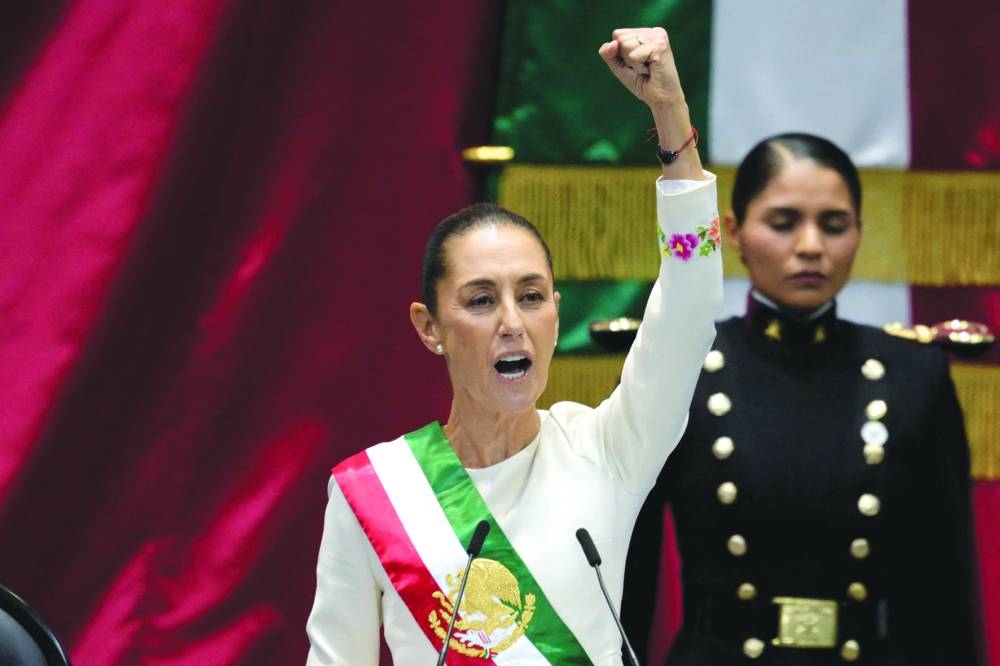Claudia Sheinbaum (pictured) was sworn in as Mexico’s first woman president yesterday, taking the reins at a time the country is struggling with violence from organised crime and a hefty deficit in Latin America’s No 2 economy.
Sheinbaum, the 62-year-old scientist and former mayor of Mexico City, was inaugurated in a ceremony in Mexico’s Congress for a six-year term lasting until 2030.
Her supporters chanted “President! President!” and “Long live Mexico!” after Sheinbaum took the oath of office in front of lawmakers.
She will later attend a celebration in Mexico City’s main square as leader of the world’s most populous Spanish-speaking country, home to 129mn people, which has had 65 male presidents since independence.
Supporters began gathering from dawn on inauguration day, which authorities declared a national holiday.
“We arrived at five in the morning,” said Marta Ramirez, a housewife who came by bus from the central city of Leon.
A woman president “understands the people better”, she said.
Sheinbaum has said on several occasions that “it’s time for women and transformation” in Mexico, a nation with a history of gender-based discrimination and violence, with around 10 women or girls murdered every day.
Political watchers and analysts predict Sheinbaum will urgently look to calm investors following the passing of a controversial judicial reform pushed by her predecessor Andres Manuel Lopez Obrador.
Markets will be looking to Sheinbaum for “a predictable and investment-friendly policy and regulatory framework”, said Alberto Ramos, head of Goldman Sachs Latin American economic research.
“Disciplined management of the budget and of state-owned enterprises, progress on public security, and safe-guarding the integrity of key institutions will be key to preserving market sentiment and sovereign debt ratings,” Ramos said, emphasising the importance of state energy firm Petroleos Mexicanos (Pemex).
The November presidential elections in the United States, Mexico’s largest trading partner, could add to market volatility, especially if former president Donald Trump, who has vowed to increase tariffs on Mexican goods, wins.
Sheinbaum’s government will present its first budget before November 15, which is expected to be highly scrutinised for clues on whether Sheinbaum will make good on commitments to reduce the fiscal deficit to 3.5% of gross domestic product from 5.9%, where it is predicted to close the year.
Lopez Obrador, whose six-year term began in 2018, managed to double Mexico’s minimum wage, reduce poverty and unemployment, broaden the base of social programmes and oversee a previous strengthening of the peso.
Touting these successes boosted his popularity and helped usher Sheinbaum, his protégée, to a landslide victory in the June elections.
Sheinbaum, however, who has promised “continuity with change”, will inherit the largest budget deficit since the 1980s and lagging economic growth.
Experts have said Mexico’s economy will require a tax reform to increase revenues, though Sheinbaum has said publicly she does not plan a sweeping tax overhaul.
Instead, she has said she will pursue other options, including improving the efficiency of tax collection at customs.

Sheinbaum speaks during her swearing-in ceremony at the Congress in Mexico City. – AFP
